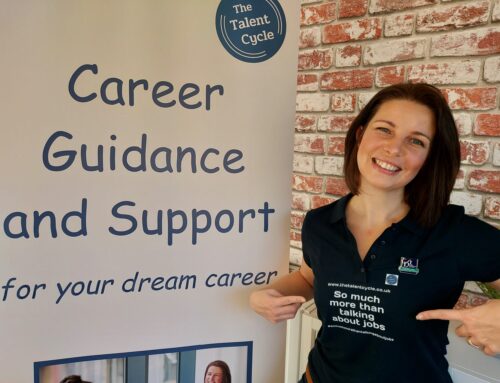Career guidance has for a number of years been firmly established as a ‘learning’ activity rather than as ‘therapy’. Well respected academics such as Tony Watts and Tristram Hooley have long argued that one of the principle benefits of career guidance is the educational support it offers individuals to learn about work, education and leisure, allowing individual aspiration to be realised and inequality of opportunity to be addressed. As any career development professional will testify however, helping people sift and access career-related opportunities is rarely a 100% rational, calm and collected process.

People have a tendency to bring aspects of all areas of their lives into career guidance interactions, including at times powerful emotions and this requires great skill and sensitivity on the part of careers practitioners. This article will focus on how careers professionals in schools and colleges can work appropriately with the emotional material brought into guidance interactions.
A double-edged sword: the core conditions of guidance
For career guidance in whatever format (1:1 interviews, group workshops, etc.) to be effective, individuals need to feel that they can safely reveal their ideas, their curiosity, their confusion and their fears about the future in a non-judgemental setting. All careers advisers are trained to facilitate such a safe space when working with clients, often with reference to the psychologist Carl Rogers’ famous core conditions for therapeutic change:[1]
- Empathy
- Genuineness
- Unconditional positive regard
By demonstrating an empathic understanding of clients’ thoughts, feelings, attitudes and values and communicating this with genuine sensitivity and understanding, careers practitioners can help bring about powerful change. When allied with a completely unconditional acceptance of everything a client brings (even “I don’t want to be here”, “I only came because I was told”, etc.) a careers adviser can cut through all sorts of external and internal barriers that might be hindering personal progress.
In such a context however, clients will sometimes share powerful emotional content, perhaps because they feel it is relevant or perhaps because it is one of the few occasions when they can unburden themselves. All careers advisers are trained to recognise the limits of their expertise and make referrals to other services where appropriate. But can careers advisers work directly with the emotional content of career guidance?
Career counselling: working out what to work with
Career guidance is not emotional counselling or psychotherapy, and there will always be instances where advisers will need to refer students to services that can support them with processing their distress. Depression or issues relating to past traumatic experiences are examples of material which are best left to therapeutic professionals to work with. That said, there are occasions where it can be appropriate for a careers adviser to work directly with the emotions that clients bring along with their career problems. Clients presenting anxiety relating to career decisions and/or career progression are familiar to all careers professionals. In a school or college setting, typical scenarios could include students expressing fear of leaving a familiar educational setting, anxiety around making the ‘right’ post-16 choices or simply worries about the transition into adulthood. Such anxieties can be powerful and can manifest in a number of ways, including apparent lack of motivation or even behavioural difficulties.
One technique – adapted from psychological therapy – which can be very effective in supporting students with career-related anxieties is cognitive behavioural coaching (CBC).[2] Working on the assumption that actions (“I’m not going to apply to college”), feelings (“I’m scared about applying to college”) and thoughts (“I’m not good enough to go to college”) are interlinked, CBC identifies the client’s thoughts as the part of this dynamic that is easiest to work with to effect change. Students could be encouraged to identify persistent negative thoughts and consciously challenge them with a positive thought (“With hard work I can achieve what I need to go to college”). Such techniques are practical but can be very successful in helping students engender more positive emotions and behaviours when making choices about their future.
An emotionally intelligent careers programme
As careers education and mental health and wellbeing are both elements of the PSHE Association’s curriculum,[3] it makes sense for careers leaders and careers advisers to give due attention to each of these when planning a school or college careers programme. ‘Resilience’ and ‘growth mindset’ have featured in much current discourse about how best to prepare young people for the rigours of adulthood and their working lives and these terms can inform activities to help students become more aware of their emotional states and learn how to manage them proactively. Much like CBC, teaching students about the difference between ‘fixed’ and ‘growth’ mindsets can help them recognise the relationship between habitual, unproductive thoughts and difficult emotional states (lack of confidence, anxiety, anger) which can hinder engagement with career exploration and decision making. With the right support, “I will never be clever enough to do it” can give way to “I can learn how to do it”.[4]
While it is true that career guidance is not therapy, it can nonetheless serve an important role in providing students with a safe, nurturing space in which some of the difficult emotions they experience as part of their journey into adulthood can be expressed and supported. Allied to a well thought-out PSHE curriculum, it can also equip students with tools to help them become more emotionally intelligent and more adept at challenging self-defeating emotions. There will of course always be occasions where very strong emotional material will merit referral to more specialist services and careers professionals should seek professional supervision if in any doubt. That said, students’ emotional lives will always feature to some extent in their career guidance interactions, and it behoves reflective careers leaders and advisers to give thought to how to work productively and appropriately with this aspect of the guidance encounter.
[1] Rogers, Carl (1956). The Necessary and Sufficient Conditions for Therapeutic Change. The Journal of Consulting Psychology, 21, pp.95-103.
[2] Yates, Julia. (2014). The Career Coaching Handbook. London and New York: Routledge, pp. 124-133.
[3] https://www.pshe-association.org.uk/
[4] https://www.mindsetworks.com/
Oliver Jenkin is a Career Development Consultant at CSW Group with 11 years’ experience helping young people bring about positive changes in their educational and working lives. Oliver is a registered member of the Career Development Institute.





